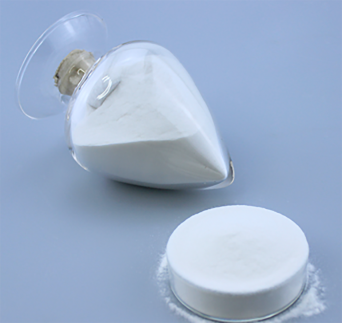
Oct . 11, 2024 01:33 Back to list
Exploring the Applications and Benefits of Methyl Hydroxyethyl Cellulose in Various Industries
The Role of Methyl Hydroxyethyl Cellulose (MHEC) in Modern Industries
Methyl Hydroxyethyl Cellulose (MHEC) is a versatile and crucial substance that has found application across numerous industries, particularly in construction, food production, pharmaceuticals, and personal care products. As a member of the cellulose ether family, MHEC is derived from natural cellulose, which is chemically modified to enhance its properties and expand its usability.
Properties of MHEC
MHEC possesses a unique combination of properties that makes it highly desirable in various applications. One of its most notable characteristics is its ability to form viscous solutions in water, which makes it an effective thickening and gelling agent. The chemical structure of MHEC allows it to dissolve easily in both hot and cold water, offering flexibility in application processes. Additionally, MHEC contributes to the stability and texture of formulations, improving the overall performance and consumer experience of the end product.
Another important property of MHEC is its film-forming capability. When applied in coatings or adhesives, MHEC can create a protective film that adds durability and resistance to environmental factors. This characteristic is especially advantageous in construction materials, such as tile adhesives and joint compounds, where water retention and adhesion are critical for effective performance.
Applications in the Construction Industry
In the construction industry, MHEC is a key ingredient in various building materials. It is commonly used in tile adhesives, plaster, and grout formulations due to its exceptional water retention properties, which enhance the workability and bonding strength of these products. MHEC prevents the rapid evaporation of water from the applied mixture, allowing for sufficient curing time and ensuring that the adhesive bonds effectively to surfaces. This results in stronger and longer-lasting installations, making MHEC invaluable in both residential and commercial construction projects.
Furthermore, MHEC is utilized in pre-mixed dry mortars, where its viscosity-modifying properties contribute to the consistency and application ease of the product. The use of MHEC not only improves the performance of these materials but also simplifies the overall construction process.
methyl hydroxyethyl cellulose mhec

MHEC in Food Production
Beyond the construction sector, MHEC is also a significant player in the food industry. It is employed as a thickening agent, stabilizer, and emulsifier in various food products. For instance, it is used in sauces, dressings, and dairy products to enhance texture and stability. The food-grade quality of MHEC allows it to be safely consumed, contributing to the mouthfeel and overall sensory profile of food items.
Moreover, MHEC is instrumental in reducing the calorie content of some products by allowing manufacturers to replace fats and oils without sacrificing texture or satisfaction. This aligns with the growing consumer demand for healthier food options, making MHEC an essential ingredient in the modern food industry.
Applications in Pharmaceuticals and Personal Care
In the pharmaceutical sector, MHEC serves as a binder and thickener, facilitating the production of various drug formulations, including suspensions and tablets. Its ability to control viscosity and improve the stability of formulations ensures that medications are effective and easy to administer.
Likewise, MHEC is increasingly found in personal care products such as lotions, creams, and shampoos. Its moisturizing properties and capability to form a gel-like texture enhance product performance, providing consumers with a pleasant user experience.
Conclusion
Methyl Hydroxyethyl Cellulose is a multipurpose compound that significantly enhances the quality and functionality of products across various industries. Its unique properties such as water retention, viscosity control, and film formation make it indispensable in construction, food production, pharmaceuticals, and personal care. As industries continue to evolve and innovate, the demand for MHEC is likely to grow, underscoring its importance in the development of high-quality products. The versatility and effectiveness of MHEC ensure that it will remain a vital ingredient in a wide array of applications for years to come.
-
Versatile Hpmc Uses in Different Industries
NewsJun.19,2025
-
Redispersible Powder's Role in Enhancing Durability of Construction Products
NewsJun.19,2025
-
Hydroxyethyl Cellulose Applications Driving Green Industrial Processes
NewsJun.19,2025
-
Exploring Different Redispersible Polymer Powder
NewsJun.19,2025
-
Choosing the Right Mortar Bonding Agent
NewsJun.19,2025
-
Applications and Significance of China Hpmc in Modern Industries
NewsJun.19,2025







